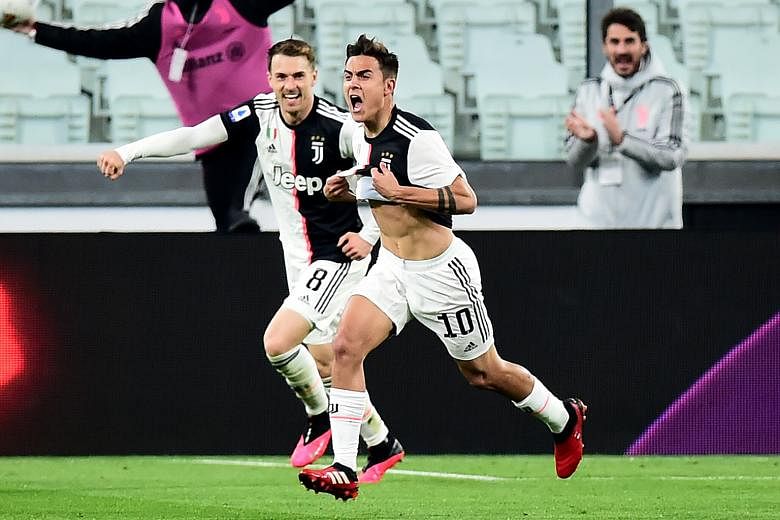NEW YORK • It was the end of March, and Josh Fiske, a urologist from New Jersey, was in the hospital fighting an uphill battle against the coronavirus.
Just a week earlier, he had easily jogged an 8km route around his neighbourhood.
But his body started to fail him. His oxygen levels dipped dangerously low, and his fever rocketed to a worrying 40 deg C.
Shifting his body in bed exhausted him. Walking a few steps felt like "hiking in thin air". Opening a bottle of iced tea was "a huge task".
Fiske kept fighting, though, and eventually, with the help of his doctors, he turned a corner.
Yet even as he did, even as he seemed assured of avoiding the worst outcomes of the coronavirus, a different sort of anxiety consumed him.
"I started to think, 'Am I going to be able to run again? Am I going to be able to walk the golf course'?" said Fiske, 46, who does a marathon or half-marathon every year. "These are things I love to do."
Athletes tend to view themselves as perhaps better equipped than the general population to avoid the worst consequences of the Covid-19 disease.
Yet interviews with athletes who have contracted the virus - from professionals to college athletes to weekend hobbyists - revealed their surprise at the potency of its symptoms, struggles to re-establish workout regimens, lingering battles with lung issues and muscle weakness, and unsettling bouts of anxiety about whether they would be able to match their physical peaks.
And with sports leagues around the world scrambling to restart play, more athletes could soon be taking on a significant amount of risk.
Von Miller, a linebacker for the National Football League (NFL) team Denver Broncos who tested positive in April, said: "It definitely shook me up a bit - it was very surreal, you know?
"My biggest takeaway from this experience is that no matter how great of shape you are in physically, no matter what your age is, that you're not immune from things like this."
Experts have warned that the virus does not discriminate.
In Italy's Serie A, Juventus forward Paulo Dybala has described his own unnerving experience dealing with the respiratory symptoms.
"I would try to train and was short of breath after five or 10 minutes," said the 26-year-old, who last month received the all-clear after six weeks of testing positive.
Dr Panagis Galiatsatos, a pulmonary physician and assistant professor at Johns Hopkins University, said that, like much about the disease, the long-term consequences for athletes who contract it are not fully understood.
Athletes, though, represent interesting case studies for doctors, given their generally good baseline health and nuanced awareness of their own bodies.
"Patients who are athletes, I love them, because they will pick up subtle changes sometimes way before even the tests identify a disease," he said.
He has singled out three complications from Covid-19 that could be of particular concern to athletes.
First, patients, like anyone with a serious respiratory infection, are at risk for long-term lung issues.
"Sometimes, a bad virus creates an airway disease similar to an asthma," he said.
"They can ravage the lungs, where the lungs were rebuilt, but not well, and patients are stuck with an asthma-like reactive airway disease situation."
Another complication is the high incidence of blood clots that doctors have seen in patients.
People diagnosed with blood clots, and prescribed blood thinners, are typically discouraged from participating in contact sports.
Finally, Dr Galiatsatos said people unfortunate enough to be placed in intensive care could deal with "ICU acquired weakness".
While no known athletes have so far been placed on ventilators, patients that need assisted breathing usually lose between 2 and 10 per cent of their muscle mass per day.
NYTIMES

